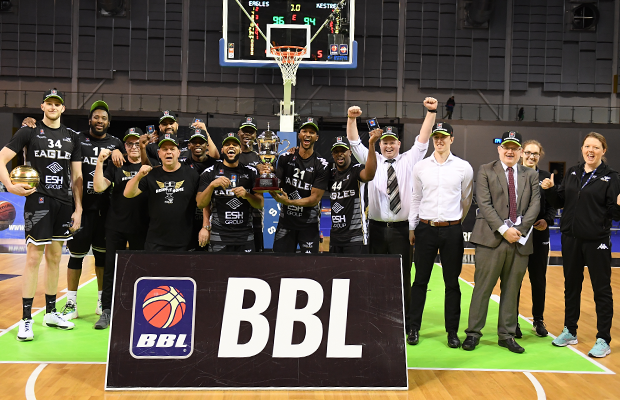British Basketball League Salary Cap (2022)

Image Credit: ahmedphotos
The British Basketball League salary cap, more commonly referred to as such but officially named the ‘Team Payments Cap’, or TPC, was used to encourage parity across the league and puts a limit on what teams can pay as British Basketball League salaries.
Ahead of the 2022-23 season the Total Payments Cap was completely removed, in the first major move the league formally announced following on from £7million of investment from Miami based investment firm 777 partners in December 2021.
Why was the British Basketball League salary cap removed?
The BBL believes the decision is “the next step to the British Basketball League achieving its goal of becoming a top level European league, with its clubs regularly competing in top level competition.”
There is an internal expectation that the removal of the TPC will attract bigger investors into the league and franchises.
The league pointed to both the Leicester Riders and London Lions competing in European competition in the 2022-23 season, saying it provides “significant benefits” to all of clubs, as well as playing an instrumental part in the continued accelerated growth of the league off the court.
The statement added:
“Homegrown and British talent is fundamental to the league’s growth and removing the Teams Payment Cap will increase opportunities for homegrown talent to make their mark in the BBL as opposed to moving further afield. This decision also highlights the league’s commitment to providing the most entertaining product for its most important stakeholders, the fans.”
What was the British Basketball League salary cap?
The British Basketball League salary cap – BBL TPC – was previously set at £250,000 per year in the 2021-22 season, up from £200,000 per year in 2018-19. This is a net figure excluding any benefits in kind players often received such as accommodation or a vehicle and it also any tax due on the payments made to players (both employer and employee).
Ahead of the 2018-19 season, a change to the British Basketball League salary cap was made to exclude the top 2 earning British players on each team in an effort to retain British talent.
It was prompted by the now-defunct London City Royals’ desire to sign GB stars Matthew Bryan-Amaning and Ashley Hamilton, as well as Leicester Riders heading into European competition the Basketball Champions League.
This exclusion of the two top-paid British players’ salaries, could easily take a BBL team’s total player salary bill – if they had the financial means to do so – to over £350,000 net.
Andy Webb, the BBL’s Chief Operating Officer said at the time:
“We have an objective as a league (a set of clubs) to have as many of the best British players playing in the BBL as is possible.
“As such we have changed our Team Payment Cap regulations so that the TPC calculation excludes the top 2 earning British players on each team.”
Why Did the British Basketball League have a salary cap?
The BBL TPC was generally used to keep overall costs down whilst maintaining a competitive balance to prevent more financially well off clubs from dominating.
However, as we have seen in the National Basketball Association (NBA), they can be a major focal point in negotiations between leagues and player unions.
This is due to preventing players being able to negotiate higher salaries even if the team is pulling in significant profits.
But this is not something the BBL had to contend with, with no players union currently existing – despite previous calls for it from the likes of GB captain Kieron Achara.
Instead the TPC was being used to predominantly try and encourage parity across the league.
Studies have shown that salary caps increase competitive balance and decrease overall salary payments within the league, however the resulting effect on social welfare is “counter-intuitive and depends on the preference of fans for aggregate talent and for competitive balance”.
A salary cap will usually result in lower aggregate talent as the best players will play where they can earn the most, but some fans are ok with lower talent if it means the league is more competitive overall.
“We have a Team Payments Cap as we believe it is essential to the ongoing development of the BBL as a League,” BBL Chief Operations Officer Andy Webb previously said.
“In particular to protect and promote the long term strength, competitiveness and viability of the League, and to ensure that the determining factor on the court is primarily sporting merit and not off court financial considerations.
“Or to put another way – we have a set of clubs who are at different stages of their development and as such have different financial capabilities (but of course we wish to maintain a competitive league and don’t want any team spending beyond their means).”



0 comments